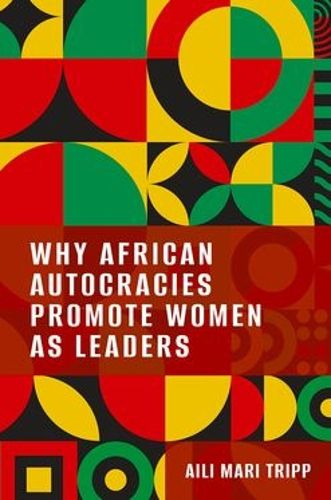Readings Newsletter
Become a Readings Member to make your shopping experience even easier.
Sign in or sign up for free!
You’re not far away from qualifying for FREE standard shipping within Australia
You’ve qualified for FREE standard shipping within Australia
The cart is loading…






Why African Autocracies Promote Women as Leaders contrasts authoritarian countries with democracies in Africa to explain how and why autocracies promote women as leaders. The face of African politics has changed significantly since the mid-1990s as more women have entered politics in both democracies and autocracies. Women's movements and organizations have successfully lobbied for and won more leadership roles for women in the executive, legislature, and sub-national bodies. At the same time, in authoritarian countries this has created a conundrum: these successes in attaining leadership roles for women potentially end up strengthening the very regime that violates human and women's rights. These regimes instrumentalize women leaders and women's rights to enhance the longevity of an autocratic ruling party by increasing vote share, enhancing internal and external legitimacy, and softening their image after civil war, jihadist activity, or military rule. This occurred in the context of the shift from one-party to multiparty states, the end of major conflicts, and changing international gender norms in the 1990s. The study draws on cross-national research in Africa and over 188 in-depth interviews in Uganda, Rwanda, Zimbabwe, Mauritania, Morocco, and in two democracies, Namibia and Botswana.
$9.00 standard shipping within Australia
FREE standard shipping within Australia for orders over $100.00
Express & International shipping calculated at checkout
Stock availability can be subject to change without notice. We recommend calling the shop or contacting our online team to check availability of low stock items. Please see our Shopping Online page for more details.
Why African Autocracies Promote Women as Leaders contrasts authoritarian countries with democracies in Africa to explain how and why autocracies promote women as leaders. The face of African politics has changed significantly since the mid-1990s as more women have entered politics in both democracies and autocracies. Women's movements and organizations have successfully lobbied for and won more leadership roles for women in the executive, legislature, and sub-national bodies. At the same time, in authoritarian countries this has created a conundrum: these successes in attaining leadership roles for women potentially end up strengthening the very regime that violates human and women's rights. These regimes instrumentalize women leaders and women's rights to enhance the longevity of an autocratic ruling party by increasing vote share, enhancing internal and external legitimacy, and softening their image after civil war, jihadist activity, or military rule. This occurred in the context of the shift from one-party to multiparty states, the end of major conflicts, and changing international gender norms in the 1990s. The study draws on cross-national research in Africa and over 188 in-depth interviews in Uganda, Rwanda, Zimbabwe, Mauritania, Morocco, and in two democracies, Namibia and Botswana.